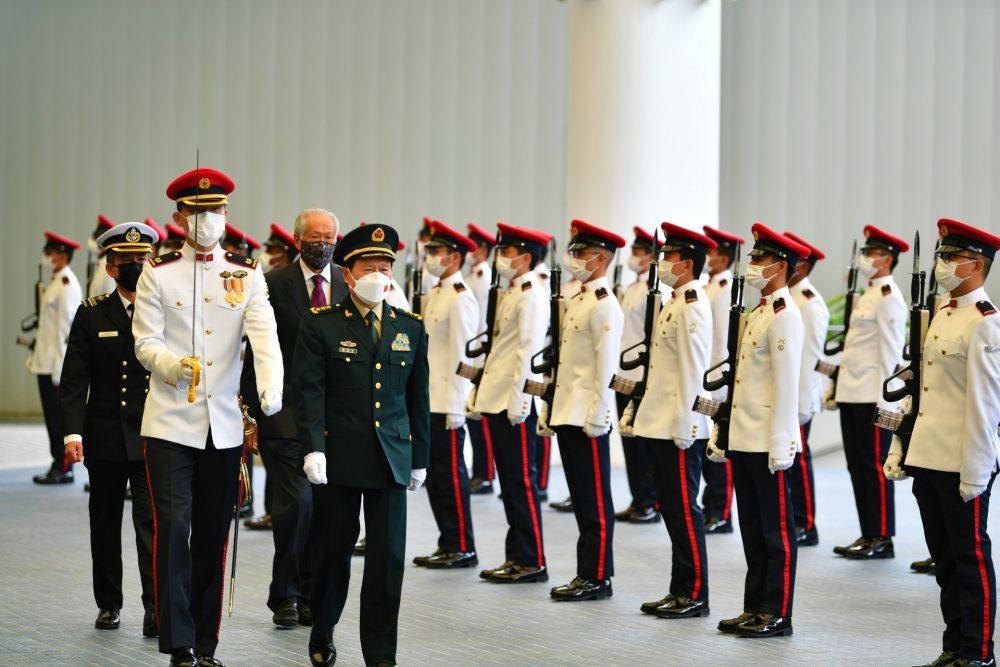Shangri-La in Singapore: face-to-face drama with set-piece moves
Posted By Michael Shoebridge on June 10, 2022 @ 17:00

The annual Shangri-La Dialogue is a key moment to hear how major powers see the world and each other. This one is more key than ‘normal’—because the Covid-19 pandemic has meant that the dialogue was last held in 2019.
The world has changed fundamentally since then as a result of Covid, China and now, of course, the return of war to Europe brought to us by Russian President Vladimir Putin.
This year’s conference has the US Pentagon chief Lloyd Austin speaking first, on Saturday morning, with his Japanese and Australian counterparts, Nobuo Kishi and Richard Marles, each up later.
Ukraine’s President Volodymyr Zelensky will give a virtual address late Saturday. His presence and speech will bring Putin’s horrific war right into the Singapore gathering. It’ll also bring the underlying Russia–China strategic partnership to people’s minds, because Putin and Xi Jinping have done nothing but lean in to their strategic partnership since that war began, through actions like the joint Russian–Chinese bomber mission [1] past Tokyo during the Quad leaders’ meeting there in May.
And China’s defence minister, Wei Fenghe, speaks on Sunday—about China’s vision for regional order.
I expect Marles to outline a policy direction we’ve heard from Prime Minister Anthony Albanese, [2] from Foreign Minister Penny Wong [3] and from Marles himself over the campaign and since coming to government.
That’s about recognising how China has changed direction and behaviour under Xi, and how Beijing is making its own choices. Those choices are shaped less by close or direct interaction and negotiation with others, and more by Xi’s direction and the Chinese Communist Party’s internal dynamics. It recognises a more assertive China more ready to try to dictate others’ choices.
So, Australian policy is to shape the regional environment that we, our partners and allies and China live and operate in—and to do this by deep engagement with our region and our partners. It’s about taking China as we find it under Xi and not expecting much change to be driven from the outside.
Marles will probably also recognise the roles of the Quad and AUKUS in Australian and regional security, taking the opportunity to commit strongly to both. On AUKUS, he’ll recognise the need to have an agreed plan with Australia’s partners the US and UK, and act on the advice of the taskforce that is working with them on our options.
This Australian direction means he will be very much aligned with the perspectives we’ll hear from Japan and the US.
Austin will build on US President Joe Biden’s and Secretary of State Antony Blinken’s recent statements [4] about US strategy—which is about outcompeting China by investing and working closely with partners and allies. Austin will be candid about China’s rising aggression and military belligerence—whether around Japan, near Taiwan, in the South China Sea or elsewhere.
Austin has got plenty of recent material on this, ranging from growing Chinese intimidation against Taiwan, to the dangerous aggression Chinese fighter pilots have shown towards Canadian and Australian patrol aircraft, to the now overt pursuit by Beijing of a direct security role in South Pacific states.
We’ll hear a more positive portrayal of China in the South Pacific from Solomon Islands Police, National Security and Correctional Services Minister Anthony Veke, who’s speaking on a panel with Indian Vice Admiral Biswajit Dasgupta and America’s Indo-Pacific Commander, Admiral John Aquilino.
China’s Wei has been more frank than may have been helpful to Beijing in previous speeches at Shangri-La. In 2019 he infamously [5] talked about the People’s Liberation Army’s Tiananmen Square massacre ordered by then paramount CCP leader Deng Xiaoping in 1989—and described it as correct policy’ that he would do again if the CCP deemed it necessary to ‘stop turbulence’.
His speech is likely to stick with the vision for the world and region that his leader set out in partnership with Putin [6] in early February. It’s likely to be quite strident, along with boilerplate language about common human destiny, avoidance of Cold War mentalities, and win–win outcomes.
So, a set-piece drama with the broad outlines pretty clear beforehand. But a thing about a face-to-face gathering like Shangri-La is that some of the most interesting developments come out of the interaction—and that makes it compelling to attend and fascinating to assess.
Article printed from The Strategist: https://aspistrategist.ru
URL to article: /shangri-la-in-singapore-face-to-face-drama-with-set-piece-moves/
URLs in this post:
[1] joint Russian–Chinese bomber mission: https://www.aljazeera.com/news/2022/5/24/china-russia-jets-conducted-patrol-as-quad-leaders-met-in-tokyo
[2] Prime Minister Anthony Albanese,: https://www.pm.gov.au/media/opening-remarks-quad-leaders-meeting
[3] Foreign Minister Penny Wong: https://www.foreignminister.gov.au/minister/penny-wong/speech/speech-pacific-islands-forum-secretariat
[4] recent statements: https://www.voanews.com/a/us-lays-out-strategy-to-outcompete-china-/6591132.html
[5] infamously: https://www.reuters.com/article/us-asia-security-tiananmen-idUSKCN1T3034
[6] partnership with Putin: http://en.kremlin.ru/supplement/5770
Click here to print.